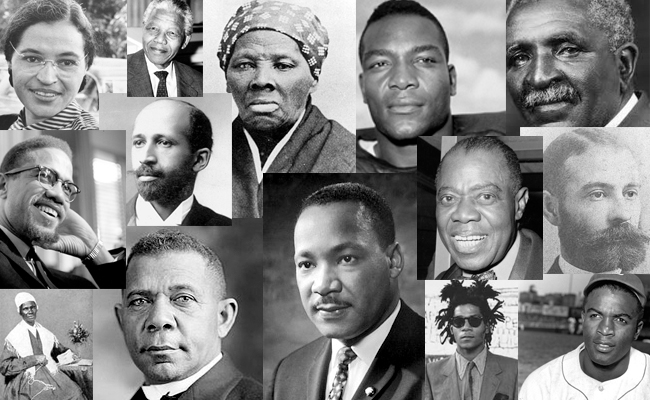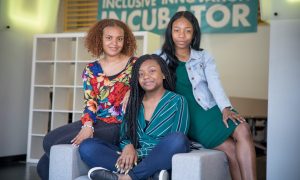Philadelphia is taking a different approach to bridging the gap between the classes of race and the significant difference in relations. Their educational system is now mandating the students to pass a year-long course in African-American history before they can graduate. There seems to be some “reservations” about the course and whether its approach and content will be enough to keep the unfortunate history of African-American events from repeating itself.
Read more as reported by The Black Home School:
Nationwide, daily news makes it apparent that race relations need to be improved in America. Escalating numbers of police brutality claims, divisive political campaigns, and horrific economic numbers make it clear that Blacks in America are suffering. Recent polls indicate that non-Black Americans are beginning to see this as a fact too. The question remains, what can we do as a country to improve our current situation. One academic approach can be found in Philadelphia.
In Philadelphia, students are required to take a one-year course in African-American history. They cannot graduate if they don’t successfully complete the course. The scope of the course is comprehensive, focusing not only on resistance and protest traditions, but also on the cultural history of Africa and the African diaspora. This mandate, the first—and virtually the only—of its kind, has been around for almost a decade. But is the class enough?
Some students think the lessons are just plain history lessons and not thought-provoking discussions on current events. One student, spoken-word poet Kai Davis, felt that “In a class that spoke about the history of Africans and Black Americans, we did not speak about race sufficiently” and that, as a result, “most students left with the same mindsets they entered with.”
And while the curriculum is substantial, sometimes the teaching approach falls short. Students study things like African civilizations, the middle passage, and the civil rights movement. “The plight of people of color was given a voice,” was one student’s positive summary. But certain teachers choose to present that content almost as artifacts, rather than as parts of a larger, ongoing narrative of oppression and resilience.
Student Gabrielle Richardson said that although the course expanded her knowledge of African-American history, “the way it was taught made it seem that racial injustice was a thing of the past. There was no correlation of historic events with current politics or culture. It was taught in a way that isolated the past and the present.”
One example she gave was the class’s treatment of Trayvon Martin’s murder. The class simply “acknowledged that it happened and moved on.” Another student, Andrew Wilkins, said: “To this day, I am confused as to what type of emotions this course intended to arise from its students.”
But if the class can be vexing for students, it’s no less so for the people standing at the front of the room, who sometimes fear that introducing current events and encouraging interpretation and debate will lead to controversy or open conflict. “It’s uncomfortable for white teachers to speak about race,” said George Bezanis, who has taught African-American history at a school. “Certain ideas, like white privilege—some people don’t know how to approach it.”
Ken Hung, a teacher said many teachers simply don’t have any comparable experiences in their own education. “We teach the way we were taught, and many of us don’t remember our teachers covering these types of topics. That’s an interesting point with ethnic studies. There’s a critical mass of people who want to teach these topics, but we don’t have the background because we didn’t go through it in school, and there aren’t many resources available.”
No single curriculum or teaching style can prevent Ferguson from becoming history that repeats itself. But classes like Philadelphia’s African-American history course do have the power to teach one invaluable lesson to students of all races. It’s called empathy.
Dana King, who has taught numerous African-American history courses, put it a different way: “What are the children who grow up to become police officers learning in school, and who are their teachers?”
Source: The Black Home School





![[Video] Chicago Police Officers Caught On Video Telling Two Black Men "We Kill Mother F**kers"](https://earhustle411.com/wp-content/uploads/2018/07/evil-cop-3-300x180.jpg)
![[Video] Chicago Police Officers Caught On Video Telling Two Black Men "We Kill Mother F**kers"](https://earhustle411.com/wp-content/uploads/2018/07/evil-cop-3-80x80.jpg)




















































































































































































































































![[Video] White Woman Calls The Cops On Black Real Estate Investor, Cops Threaten To Arrest Her For Harassing Him](https://earhustle411.com/wp-content/uploads/2018/05/nosy-neighbor-300x180.png)
![[Video] White Woman Calls The Cops On Black Real Estate Investor, Cops Threaten To Arrest Her For Harassing Him](https://earhustle411.com/wp-content/uploads/2018/05/nosy-neighbor-80x80.png)


![White Scientist Says The Black Community Is Being Targeted By The Medical System, They Are Deliberatly Being Poisoned [Video]](https://earhustle411.com/wp-content/uploads/2016/05/mike-adams-300x180.jpg)
![White Scientist Says The Black Community Is Being Targeted By The Medical System, They Are Deliberatly Being Poisoned [Video]](https://earhustle411.com/wp-content/uploads/2016/05/mike-adams-80x80.jpg)








![Teenage Girl Shot In Her Stomach Three Times But Took Time To Post To Facebook [ Video]](https://earhustle411.com/wp-content/uploads/2016/02/Gangster-chick-300x180.jpg)
![Teenage Girl Shot In Her Stomach Three Times But Took Time To Post To Facebook [ Video]](https://earhustle411.com/wp-content/uploads/2016/02/Gangster-chick-80x80.jpg)







